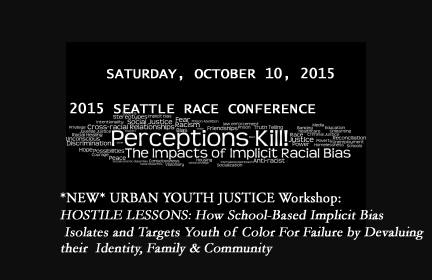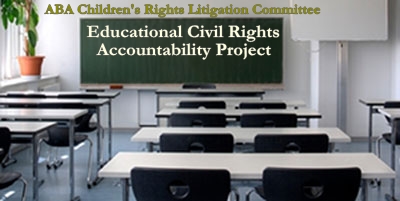RACIAL EQUITY & EXPANDED LEARNING OPPORTUNITY (ELO): Quality Expanded Learning Opportunity Can Help Meet Increasing Racial Equity Challenges in Education
By Ernest Saadiq Morris, Urban Youth Justice *
The rapidly diversifying student population in Washington State, the Pacific Northwest, and across the United States presents educational equity challenges that must be met by Expanded Learning Opportunity (ELO) programs in the more racially diverse and not-too-distant future.
Consider this changing youth demographic landscape:
- Minority youth under age 20 currently outnumber white youth in 504 U.S. Counties.
- More than 47% children under age 5 are non-white minorities.
- By 2023, youth of color will be the majority of children under 18, with Latino minors comprising the largest segment of that population.
Source: Growing Diversity Among America’s Children and Youth: Spatial and Temporal Dimensions, Population and Development Review, March 2010
If the educational achievement gap (as measured by the graduation and post-secondary education rates among today’s Black, Latino, and other similarly disadvantaged youth of color) increases exponentially similar to the anticipated growth in minority youth population, then a crippling social and economic crisis may result.
A potential critical mass of economically dispossessed youth and young adults of color with limited education and a lack of advanced trade skills will surely throw this nation into crisis. The impending drain on social services budgets alone would significantly burden state and federal governments and it is doubtful that an aging (future minority) white population could maintain a robust economy alone. This is not a winning formula for a brighter future.
Expanded Learning Opportunity is unique in that it is naturally positioned to address and ameliorate this potential social and economic crisis arising from the failure of the traditional educational status quo to provide equal educational opportunity to students of color– a promise embodied in the 1954 U.S. Supreme Court Brown v. Board of Education decision that was never delivered.
Since the Brown v. Board decision, Black youth and similarly disadvantaged students of color continued to endure a legacy of unequal educational opportunity that has spanned multiple generations, reinforced by white middle class flight from urban public education, and the inferior and unequal allocation of educational resources.
This entrenched educational inequality based on race, ethnicity, and culture is exacerbated by a school-to-prison pipeline that merges inferior educational opportunity with overly punitive (and racially disproportionate) school discipline that increases the risk of criminal justice system contacts, mass incarceration, and chronic under/unemployment, thus perpetuating a legacy of lifelong economic oppression and intergenerational poverty.
Quality expanded learning opportunity programs aim to improve and enrich the educational opportunity of all youth. Consequently, the opportunity and enrichment provided by quality ELO programs implementing racially inclusive and collaborative strategies can be a crucial intervention to the future success of youth of color and society as a whole.
An ELO program that demonstrates its racial equity awareness through its development of effective equity & inclusion strategies and methodology can have a considerable impact on the achievement gap by providing quality learning opportunity and quality personal enrichment to disadvantaged students of color.
Racial inequity starts with the Pre-K/Early Education opportunity gap. Low-income youth of color that don’t participate in a quality early education program can enter kindergarten up to 18 months behind their peers. [Source: National Institute for Early Education Research, The State of Preschool 2011]. This results in educational achievement disparity that often persists and remains an obstacle throughout that disadvantaged student’s K-12 educational career or until the student drops out or is pushed out.
Quality ELO programs show promising ability to provide enriched early learning experiences to address and bridge the pre-K/early learning education opportunity gap. A quality ELO program can also provide enriched K-12 educational opportunity to address and bridge the entrenched educational opportunity disparity that many youth of color face.
Ultimately, ELO programs must use a proactive approach to assure racial equity within their programs and avoid many of the barriers found in traditional school-based learning environments.
ELO programs must work to acknowledge structural, institutional and subconscious barriers within their programmatic choices that marginalize or suggest cultural, economic and/or political preferences that cut along race/ethnic origin, nationality, and/or skin color lines.
ELO programs should strive to engage in a more flexible pedagogy than traditional school-based learning. ELO programs can differentiate themselves by emphasizing flexible learning experiences, i.e., active (or experiential) learning in an individualized, peer-to-peer or team learning format.
ELO programs should embrace a wider cultural relevance in their teaching and learning practices to maximize the involvement of youth of color, and increase their recruitment and retainment with more tolerant programmatic choices, including staffing and curriculum.
Moving beyond the entrenched educational opportunity gap requires ELO programs to demonstrate to youth of color that racial equity is a true programmatic goal, i.e., with inclusive strategies, a willingness to tolerate diverse cultural viewpoints, and a commitment to empower disadvantaged youth with an enriched educational experiences that does not merely extend the traditional school day.
Quality ELO is the intelligent response to the racial gap in educational opportunity that results in the K-12 education achievement gap. Rather than more of the same entrenched inequities, ELO can provide enriched learning experiences and opportunities for youth of color and similarly disadvantaged students that can resemble the hopeful vision of racial equity in education post-Brown v. Board.
*Ernest Saadiq Morris is a youth rights advocate, civil rights and liberties lawyer, and founding director of the public education and advocacy initiative, Urban Youth Justice. He has been defeating the school-to-prison pipeline since 2004, including coordinating the largest successful mass student defense to-date (Round Rock, Texas 2006-2007). You can follow Urban Youth Justice daily on Facebook and Twitter.



 Spotlight on 2014 Legal Fellow Whitney Knox
Spotlight on 2014 Legal Fellow Whitney Knox
